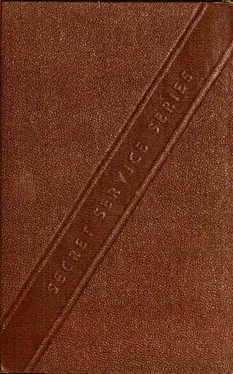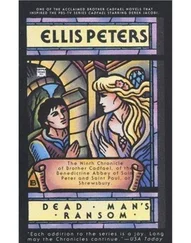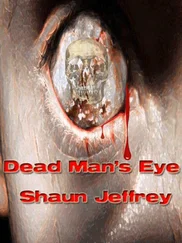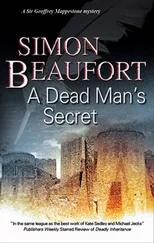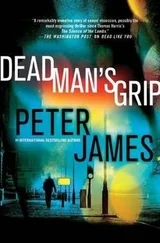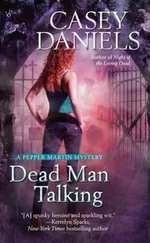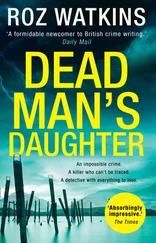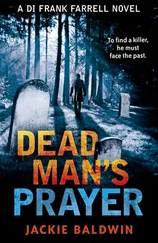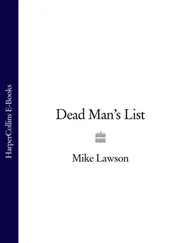Valentine Williams - Dead Man Manor
Здесь есть возможность читать онлайн «Valentine Williams - Dead Man Manor» — ознакомительный отрывок электронной книги совершенно бесплатно, а после прочтения отрывка купить полную версию. В некоторых случаях можно слушать аудио, скачать через торрент в формате fb2 и присутствует краткое содержание. Жанр: unrecognised, на английском языке. Описание произведения, (предисловие) а так же отзывы посетителей доступны на портале библиотеки ЛибКат.
- Название:Dead Man Manor
- Автор:
- Жанр:
- Год:неизвестен
- ISBN:нет данных
- Рейтинг книги:3 / 5. Голосов: 1
-
Избранное:Добавить в избранное
- Отзывы:
-
Ваша оценка:
- 60
- 1
- 2
- 3
- 4
- 5
Dead Man Manor: краткое содержание, описание и аннотация
Предлагаем к чтению аннотацию, описание, краткое содержание или предисловие (зависит от того, что написал сам автор книги «Dead Man Manor»). Если вы не нашли необходимую информацию о книге — напишите в комментариях, мы постараемся отыскать её.
Dead Man Manor — читать онлайн ознакомительный отрывок
Ниже представлен текст книги, разбитый по страницам. Система сохранения места последней прочитанной страницы, позволяет с удобством читать онлайн бесплатно книгу «Dead Man Manor», без необходимости каждый раз заново искать на чём Вы остановились. Поставьте закладку, и сможете в любой момент перейти на страницу, на которой закончили чтение.
Интервал:
Закладка:
Mr. Treadgold coughed. ‘Why, yes!’
‘It’s a grand hobby, don’t you think?’
‘Of course. Although, mind you, a fellow can have other hobbies besides . . .’
‘Have you? What, for instance?’
‘Stamps!’
The snub nose wrinkled disapproval. ‘Pretty staid, isn’t it?’
Mr. Treadgold’s laugh was quite good-humoured. ‘To quote Tristram Shandy again, which I must warn you I do fairly often, as it’s my favourite book, “So long as a man rides his hobby-horse peaceably and quietly along the King’s highway, and neither compels you or me to get up behind him—pray, sir, what have either you or I to do with it?’” He chuckled. ‘But let that go. I’m also interested, albeit in quite an amateur way, in criminology. Does that meet with your commendation?’
‘It’s a bit more red-blooded, anyway,’ said the young man more graciously. ‘So you were trying out your what-do-you-call-it—your inductive reasoning on me, eh?’
‘Deductive,’ Mr. Treadgold amended, and sighed. ‘It’s a bad habit of mine, I’m afraid!’
Wood laughed. ‘Well, I give you fair warning, Mr. Treadgold, you’re going to have the sudden death of a number of fine trout to investigate. By the way, what fly did you think of using?’
The other seemed slightly taken aback. ‘Fly?’ he murmured vaguely.
‘They use a Montreal or a Silver Doctor mostly round here, the gardien says,’ Wood rattled on. ‘But take my tip and stick to a Brown Hackle!’
Mr. Treadgold bit his moustache. ‘It’s rather a long time since I did any fishing and I’m probably a bit rusty,’ he observed tentatively. ‘Perhaps you wouldn’t mind my going along with you once or twice until I get the hang of it again.’
‘Sure. Any time you say. By the way, my French isn’t so hot. How’s yours?’
‘I can make myself understood.’
‘Then you’re hereby appointed interpreter to this outfit. Gosh, is that the supper bell already? I’ve got to clean up . . .’
There was no formality about the evening meal. People sat down anywhere at the long table in their fishing-clothes. Madeleine, the Angel’s bespectacled and bustling daughter, was already serving the soup when Mr. Treadgold and the doctor arrived. Tisserand, Monsieur Forgeron’s head clerk from Quebec, who was spending his summer vacation at the camp, rose up from the head of the table to greet them. Then he introduced them in turn to his wife and two plain daughters and to their fellow guests—General Rees, a rather irascible-looking Englishman, and his wife, Lady Gwendolen, parents of the small boy, whom everybody called ‘Shiner’; the Montgomerys, a middle-aged American married couple; and lastly Adams, who, holding out a welcoming hand, made room for Mr. Treadgold beside him.
Mr. Treadgold found himself instinctively drawn to Adams. The man had natural charm. He seemed to possess an effortless knack of drawing people out, of making them like him. The whole conversation at table centred about him. In faultless French he chatted with the Tisserands, making gallant remarks to the drab daughters, chaffing old Tisserand on his fishing prowess, and, dropping into English, talked fish with the General or Wall Street prices with Montgomery. Polished and highly intelligent, he was an excellent conversationalist and appeared to know everyone and to have been everywhere. The small Rees boy was obviously devoted to him and Mr. Treadgold was quite touched to see the trouble Adams took to interest the youngster and put him at his ease. Shiner rattled away to him freely—Adams and Batisse, the guide who usually accompanied them on their fishing excursions, seemed to be his two great heroes.
‘And what did you do with yourself all the afternoon?’ Adams took advantage of a lull in the conversation to ask Mr. Treadgold.
The latter explained that he had strolled as far as the village—he was careful not to allude to his business with Ruffier. ‘And, by the by,’ he went on, ‘I had a curious adventure. . .’
His opening secured immediate silence in which he told his story. ‘I gather I had a narrow escape from closer acquaintance with a homicidal lunatic,’ he concluded.
Adams laughed rather contemptuously. ‘He’s no more a lunatic than you are, unless you call an habitual drunkard a lunatic!’
‘You know this man?’ Mr. Treadgold asked, in surprise.
‘Sure. I used to visit at the Manor when the old seigneur was alive—that’s more than twenty years ago. Even then this ruffian—Le Borgne, as they call him—was the village ne’er-do-well, a poacher and what have you, and half the time soused to the eyeballs with whisky blanc, if you know what that is!’
‘It’s spirit made from corn,’ Shiner piped up. ‘Batisse drinks it. . .’
‘I thought he’d died of drink years ago,’ Adams continued to Mr. Treadgold. ‘I’m very interested by what you tell me—very interested!’ He fell silent, staring at his plate.
‘It seems a crime that such a fine old house should fall into ruin,’ Mr. Treadgold remarked. ‘The present seigneur lives abroad, they tell me. . .’
His neighbour nodded. ‘Yes. In Paris.’ And he added rather grimly, ‘If he’s wise, he’ll stop there!’
Mr. Treadgold elevated his eyebrows. ‘What’s the trouble?’
Adams shrugged. ‘One of those cases of a gentleman leaving his country for his country’s good, shall we say?’ He relapsed into silence.
The General’s metallic voice rang out. ‘Whether this Le Borgne, or whatever his name is, is mad or sane, it’s a pretty state of things, I must say, to have a drunken savage roving round the camp. A poacher, too, by the Lord Harry! Shiner,’ he cried to his son, ‘don’t let me catch you going near this house, do you hear?’
‘Okeh, Dad,’ said the boy composedly.
‘I’m told that the villagers believe the Manor’s haunted,’ Mr. Treadgold observed mildly.
Shiner caught his breath. ‘Haunted?’ he echoed, saucer-eyed.
‘I think that old What’s-His-Name is the ghost, myself,’ Mr. Treadgold opined shrewdly. ‘But the story is that the spirit of one of the old seigneurs walks the empty rooms at night. . .’
Adams looked up quickly. ‘Do you mean to say that footsteps have actually been heard in the Manor?’ he demanded.
Mr. Treadgold laughed. ‘That’s the gossip. I don’t know anything about it, and as things are I certainly don’t propose to find out!’
The lawyer did not echo his laugh. It appeared to Mr. Treadgold that there were lines on either side of the cleanly chiselled mouth which he had not observed there before, as though the smooth-shaven face had suddenly hardened. Their further conversation was broken off by the company rising from the table. Joyfully Mr. Treadgold skipped off to his stamps.
CHAPTER VI
But he had reckoned without the rather primitive lighting arrangements at the camp. On reaching his hut and seating himself at the table, the stamps spread out before him, lens, perforation gauge, and catalogue within reach, he soon discovered that the electric light was much too feeble for his purpose. He noted, however, that the three Confederates included a five-cent green-and-carmine Bâton Rouge issue which was new to him, and that among the Canadians was the seventeen-cent blue with the Jacques Cartier head—an issue of the sixties—which was missing from his very comprehensive British Empire collection.
Locking the stamps away again, he took from its hook his old brown Inverness cape, which he had purchased on a shooting holiday in Scotland a good fifteen years before, and throwing it about his shoulders, went out into the cool, bright evening. It was not yet eight o’clock and still daylight. He strolled out on the landing-stage, smoking his cigar and watching the sun sink behind the lake.
Читать дальшеИнтервал:
Закладка:
Похожие книги на «Dead Man Manor»
Представляем Вашему вниманию похожие книги на «Dead Man Manor» списком для выбора. Мы отобрали схожую по названию и смыслу литературу в надежде предоставить читателям больше вариантов отыскать новые, интересные, ещё непрочитанные произведения.
Обсуждение, отзывы о книге «Dead Man Manor» и просто собственные мнения читателей. Оставьте ваши комментарии, напишите, что Вы думаете о произведении, его смысле или главных героях. Укажите что конкретно понравилось, а что нет, и почему Вы так считаете.
